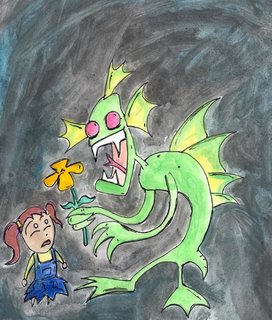
It is not disputed that hypochondria can be successfully treated. Behavioral and drug therapies have both proven promising, and ultimately produce the same result: a reduction in the strength of dysfunctional beliefs.
While many define hypochondria as the preoccupation or obsession with health and imaginary disease, it is more accurately defined as the surrender to irrational beliefs. The hypochondriac embraces an idea as truth, without evidence or consideration for past experience.
Professionals are now proclaiming this way of thinking to be the hypochondriac’s physical illness, a “neuro-chemical imbalance in the brain,” which causes the person to succumb to illogical viewpoints. They’ve proved that this flawed judgment can be corrected by altering the mind’s thinking process through drug therapy. But, are we “illogical people” capable of correcting our way of thinking without the enablement of prescription drugs? Cognitive and behavioral therapists have proven that belief systems can also be altered through alternative means, such as psycho education and the monitoring, identifying and challenging of our unreasonable thoughts.
If both treatment methods are ultimately successful, is one superior to the other? Does the end justify the means?
While drug therapy is regarded as a successful treatment for hypochondria, its effects are temporary and only last while the patient is medicated. The thinking process is artificially altered, instead of consciously changed by the patient. This means it is more of a temporary fix or “Band-Aid,” not the solution. This approach is fitting for today’s American society, which is addicted to instant gratification. Medication is to the hypochondriac, what the diet pill is to the obese; while it initially sheds the pounds or irrational thoughts, it is addicting and temporary.
It’s my personal belief that the cure must come from within, not from a bottle. In my experience, the irrational thoughts that fuel the hypochondria don’t stop at health-related concerns, it seeps into other aspects of life and causes clouded thinking in general. In order for the hypochondriac to experience a higher quality of life, free of irrational thinking, we must address the problem, not mask it. But, if we truly do suffer from a tangible neuro-chemical imbalance, how can therapy alone address this? I don’t know.
What I do know, is that the mind is a powerful thing. If we can harness our imaginations and focus our energy in positive ways, life would be a much more enjoyable experience. Studies do show that a group receiving placebo will experience the same result as a group taking Prozac if they truly believe in the cure.
Therapy or drugs, to each his own, but I’d definitely advise against the lobotomy of the 1960’s.
* * *
Reading too many scholarly journals has kicked my brain tumor into high gear…must go medicate with some beer.
 I either wake up running or fall out of bed. I eat at the same restaurant for three weeks in a row, then not all for the next five. I go from drinking ten cups of coffee a day for six months, to none.
I either wake up running or fall out of bed. I eat at the same restaurant for three weeks in a row, then not all for the next five. I go from drinking ten cups of coffee a day for six months, to none.





